

Neuro Learning. New Learning Skills. New Memory Aids. Neuro Learning. New Learning. NewEd. EDUCATION. Bespoke Learning. Ple. PLE Personalized Learning Environment. Other Learning. Personalising education – is it a good idea? A disturbing number of people are still talking about personalising education – making it person-centred. Often, this talk about the student as person is little more than snappy advertising copy that is left deliberately vague so that it can mean many different things to many different people, thereby maximising its market appeal.
Or it functions like a decorative bow on a box that is full of other pedagogic goodies (like non-linearity and life-long learning), creating the mistaken impression that somehow all those other wonderful things are connected by some ribbon of logic to the big red bow on the outside. The talk about personalising education is horribly muddled, so to avoid getting lost in that box full of pedagogic goodies, let’s just focus on the big red bow on the outside: the insistence that we must think of the student as a person. 1. Is that not a good idea? No, it isn’t. 2. This is pure naivety. 3. We are not against children choosing things. 4. 5. 6. Related Articles. Personalising education in Greece - a reply to Mr Drivas.
A few people in Greece are beginning to call for the personalisation of education and, online at least, the talk is gaining some momentum.
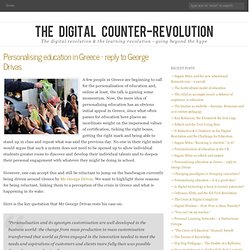
Now, the mere idea of personalising education has an obvious initial appeal in Greece, since what often passes for education here places an inordinate weight on the impersonal values of certification, ticking the right boxes, getting the right mark and being able to stand up in class and repeat what was said the previous day. No one in their right mind would argue that such a system does not need to be opened up to allow individual students greater room to discover and develop their individual talents and to deepen their personal engagement with whatever they might be doing in school. However, one can accept this and still be reluctant to jump on the bandwagon currently being driven around Greece by Mr George Drivas. Here is the key quotation that Mr George Drivas rests his case on: The quote is from a book by David H Hargreaves. 1. 2. 3. Notes 1. Mind Tools - Self-Study Management Trainin.
Flashcards - Biology - Science Observation. Home. Homeschooling. Autodidact. Used homeschool curriculum, and homeschool groups, events, and activities. Homeschooling enrollment skyrocketing as parents seek to protect children from public school brainwashing. (NaturalNews) There is less faith now in the public education system than there ever has been.
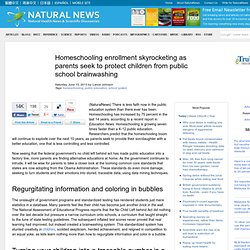
Homeschooling has increased by 75 percent in the last 14 years, according to a recent report in Education News. Homeschooling is growing seven times faster than a K-12 public education. Researchers predict that the homeschooling boom will continue to explode over the next 10 years, as parents seek to provide their son/daughter with a better education, one that is less controlling and less controlled. Now seeing that the federal government's no child left behind act has made public education into a factory line, more parents are finding alternative educations at home. As the government continues to intrude, it will be wise for parents to take a closer look at the looming common core standards that states are now adopting from the Obama Administration.
The onslaught of government programs and standardized testing has rendered students just mere statistics in a database. Learner-based Teaching. The Learning Revolution. Move Over MOOCs, It's Online, Competency Time. The Real Revolution in Online Education Isn’t MOOCs. Data is confirming what we already know: recruiting is an imprecise activity, and degrees don’t communicate much about a candidate’s potential and fit.
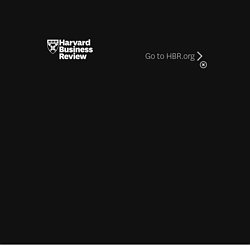
Employers need to know what a student knows and can do. Something is clearly wrong when only 11% of business leaders — compared to 96% of chief academic officers — believe that graduates have the requisite skills for the workforce. It’s therefore unlikely that business leaders are following closely what’s going on in higher education. Even the latest hoopla around massive open online courses (MOOCs) amounts to more of the same: academics designing courses that correspond with their own interests rather than the needs of the workforce, but now doing it online. Degrees Based on What You Can Do, Not How Long You Went. Competency-based education arrives at three major public institutions.
Competency-based education is going upmarket.
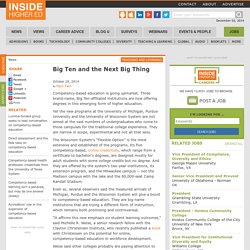
Three brand-name, Big Ten-affiliated institutions are now offering degrees in this emerging form of higher education. Yet the new programs at the University of Michigan, Purdue University and the University of Wisconsin System are not aimed at the vast numbers of undergraduates who come to those campuses for the traditional college experience. They are narrow in scope, experimental and not all that sexy. The Wisconsin System’s “Flexible Option” is the most extensive and established of the programs. Its five competency-based, online credentials, which range from a certificate to bachelor’s degrees, are designed mostly for adult students with some college credits but no degree. Even so, several observers said the measured arrivals of Michigan, Purdue and the Wisconsin System will give a boost to competency-based education.
Competency-Based Education. One in five people in this country right now – over 43 million – have some college credit but no degree.
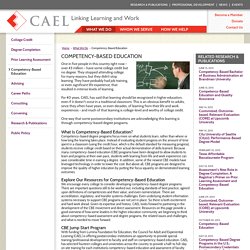
They stopped attending college for many reasons, but they didn’t stop learning. They have probably had job training, or even significant life experience, that resulted in intense levels of learning. Competency-Based Learning or Personalized Learning. Transitioning away from seat time, in favor of a structure that creates flexibility, allows students to progress as they demonstrate mastery of academic content, regardless of time, place, or pace of learning.
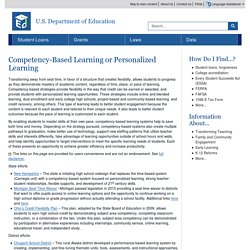
Competency-based strategies provide flexibility in the way that credit can be earned or awarded, and provide students with personalized learning opportunities. These strategies include online and blended learning, dual enrollment and early college high schools, project-based and community-based learning, and credit recovery, among others. This type of learning leads to better student engagement because the content is relevant to each student and tailored to their unique needs.